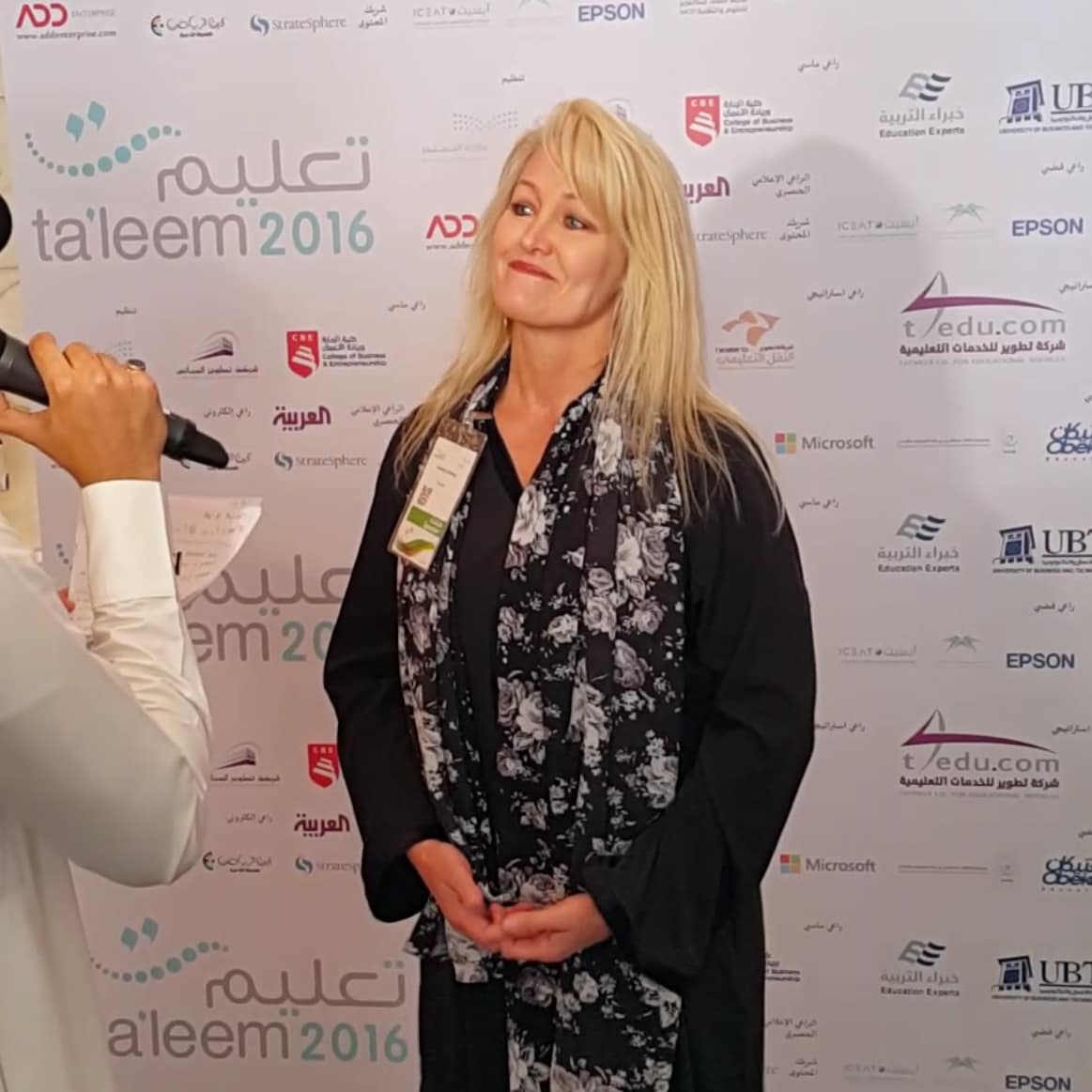Amanda Collins, Pearson's Director of School Services in the Middle East, believes professional development for teachers is essential to raising standard of UAE schools
by
A recent article in the UAE's National newspaper reported that over 20,000 students in Abu Dhabi are currently enrolled in schools deemed as weak or very weak by school inspectors.
The figure was released by the Abu Dhabi Education Council (ADEC) following the first round of school inspections that have been conducted as part of the new UAE School Inspection Framework. So far in 2016, 41 schools across Abu Dhabi have been inspected, with 19 schools being categorised by the new reporting structure as either "weak" or "very weak". The good news is that two schools have fallen into the "outstanding" category and eight schools classed as either "good" or "very" good.
The UAE Ministry of Education launched the new School Inspection Framework in 2015 to unify the various school standard systems that had previously been in place across the seven Emirates. Under the Framework, schools are assessed against a number of criteria, including student achievement, personal and social development of students, teaching and assessment, curriculum, protection, care, guidance and support of students, and leadership and management. Schools are ranked into six categories: outstanding, very good, good, acceptable, weak and very weak.
A school’s performance against the Framework is linked to whether ADEC grants permission for that school to increase its fees. ADEC recently released figures showing that out of the 90 schools requesting a fee increase for the 2016-2017 academic year, 39 applications were rejected, suggesting a significant percentage of schools were not meeting basic Framework criteria.
The launch of the new system is no doubt a step in the right direction when it comes to understanding the quality of teaching and learning taking place in the UAE, with identification of issues the first step in building a strong, future-proof education system.
The real question is what do we do with this information? How can we use the valuable data collected from school inspections to shape positive reforms that will have a positive impact on both teachers and their students?
The report ADEC released following the first round of inspections noted that of the 19 schools falling into the “weak” or “very weak” category, 14 have failed to improve over the past three inspections. This is troublesome, as it suggests that despite the deficiencies being identified in schools, little progress is being made in redressing these issues.
The inspections in Abu Dhabi have shown that many of the greatest challenges facing our schools relate to the quantity and quality of available teaching staff. ADEC reported that September to December 2016 saw a turnover rate of teachers of 20% in Abu Dhabi schools. Absenteeism has been cited as a major issue, with the National newspaper also reporting a high number of teachers failing to turn up to class. Anecdotal evidence suggests several reasons for high rates of absenteeism amongst teachers, including unsustainable workloads and a lack of knowledge about new reporting and compliance obligations. Recent media articles have suggested that as well as long work hours, high levels of stress are leading to “scores” of teachers in the UAE resigning.
Ongoing training and professional development for educators must therefore be at the heart of any solution to the main challenges being experienced within our schools. Those schools that rate highly on the new School Inspection Framework all enjoy strong and effective leadership – but the strong leadership exhibited in these high performing schools is no accident. Effective school leadership requires an ongoing commitment to professional learning and development on behalf of school principals and others within the school leadership team. Senior educators in our schools need to be constantly updated with the skills, knowledge and confidence necessary to deal with the complex challenges impacting modern school environments. Importantly, they must also be well equipped to guide the wider school community through changes to curriculum, assessment and reporting.
As already mentioned, absenteeism and high turnover of teachers can be, at least in part, explained by teachers feeling overwhelmed by new regulations and ill-equipped to deal with the multitude of other complex challenges facing today’s educators. Professional Development that specifically helps teachers and school leaders to implement reforms that will help improve their school’s performance during inspections is essential – with emphasis on improving learner outcomes all important. Schools need to be supported in their efforts to keep good staff. Increased pay for teachers as an incentive to stay is not always a sustainable option, but increased and improved Professional Development is. And while many school leaders are reluctant to invest in staff training for fear that if teachers leave it will be a waste of money, these leaders need to realise that it is often this investment in teachers that encourages them to stay, and give their best to a school.
Many weak schools are unaware of how to effectively use data to improve school performance and classroom instruction. Technology is often heralded as a panacea to fixing major education issues. But too often technology is unfortunately viewed by teachers as more of a hindrance than a help – largely due to technology being implemented without the training and support necessary to ensure it is used effectively. The result is teachers feeling burdened rather than empowered by technology – resenting its introduction and failing to exploit its potential as a way of making the teaching, assessment and reporting process more efficient and effective. We need to take steps to ensure data and technology are used optimally, benefitting school performance rather than hindering it. One of the easiest ways of achieving this is making the relevant training more effective and accessible.
So, in short, there are some important lessons that we can take from the findings of the first round of school inspections conducted under the new Framework. Giving educators and school leaders the tools, confidence and capabilities to address the issues being picked up will help us to build a robust school system. This is essential for ensuring each and every learner in the UAE is being given the best chance of meeting their potential in a schools that comply with the Ministry of Education’s new standards.




